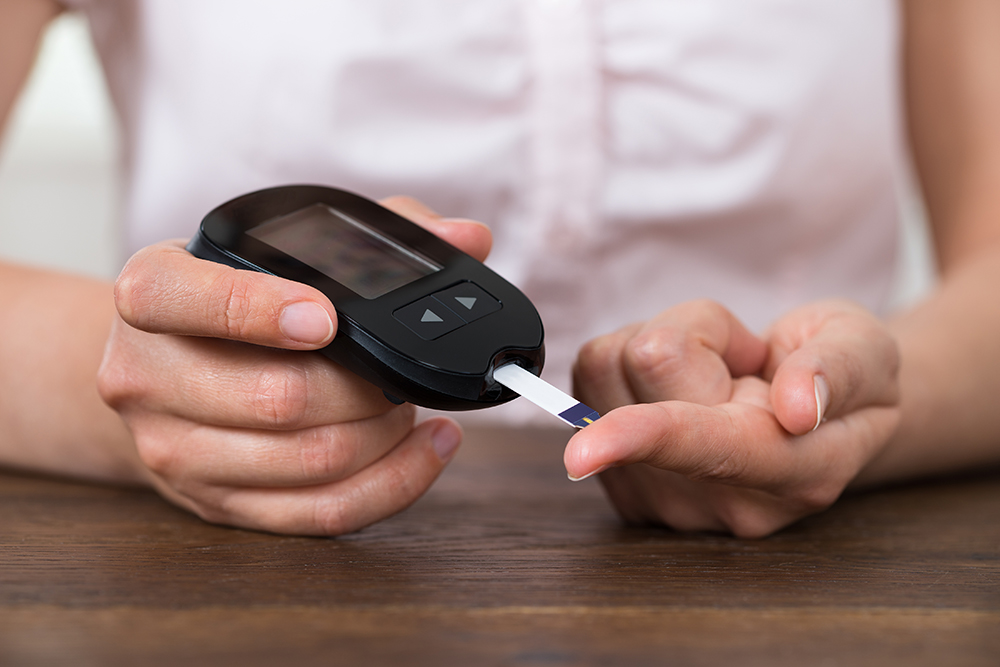Sleep apnea and type 2 diabetes are serious conditions that can potentially cause life-threatening complications. Learning about the relationship between the two can help sufferers of the conditions to successfully manage them.

Sleep Apnea
Obstructive sleep apnea (OSA) is a sleep disorder that causes sufferers to experience breathing interruptions throughout the night, which can cause symptoms such as loud snoring and sudden wakefulness. OSA can also cause serious health complications, including a higher risk of heart disease and heart-related problems, as well as type 2 diabetes. Although the disorder can affect anyone, those who are overweight or have a family history of sleep apnea, have a higher chance of developing OSA.
Type 2 Diabetes
Type 2 diabetes is a chronic condition in which the body elevates blood glucose (sugar) levels. The body fails to use insulin properly or becomes resistant to the effects of it. Initially, the pancreas produces extra insulin to stabilize the levels, but in the long-term, it can’t produce enough insulin to maintain them. Having one or more risk factors -- such as being overweight, being inactive or having a family history of diabetes -- can increase the chance of contracting the disease.
Relationship Between Sleep Apnea and Type 2 Diabetes
Diabetes affects roughly 25.6 million people in the U.S. who are 20 years old and over, according to the Centers for Disease Control and Prevention, and between 90 to 95 percent of these cases are type 2 diabetes. Around seven in 10 adults with type 2 diabetes also suffer from obstructive sleep apnea. In fact, the prevalence of sleep apnea can be as high as 72 percent in those with diabetes.
When OSA is poorly managed, it makes controlling blood sugar levels (which causes symptoms of diabetes) to become more severe and increases the risk of complications. The American Academy of Sleep Medicine recommends those with type 2 diabetes to undergo a medical evaluation for sleep apnea.
Stress and excess fat help explain the connection between sleep apnea and type 2 diabetes. Interrupted sleep -- which occurs with sleep apnea -- can cause an increased stress response and lead to difficulty keeping blood sugar levels under control. Excess weight around the neck in those with type 2 diabetes can obstruct the airway during sleep, resulting in stopping and starting breathing repeatedly.
Importance of Managing Sleep Apnea and Type 2 Diabetes
Keeping both type 2 diabetes and sleep apnea under control is crucial in minimizing the risk of complications. Managing these conditions effectively can also reduce symptoms. For sleep apnea, using a CPAP machine to keep the airway open during sleep is a crucial tool; for diabetes, controlling blood sugar levels through diet, exercise and insulin injections are just as critical. A University of Chicago study found that using a CPAP machine to manage sleep apnea resulted in lower blood glucose levels, as well as healthier blood sugar response after breakfast, demonstrating the importance of managing both conditions.
If you or a loved one needs help managing your sleep apnea condition, please visit SoClean to view our products. We make it easy to keep CPAP equipment clean and free of CPAP bacteria for better, cleaner and safer sleep.
Sources:
http://www.aasmnet.org/articles.aspx?id=3935
https://www.diabetesselfmanagement.com/blog/sleep-apnea-a-hidden-enemy-in-diabetes/
http://www.idf.org/sleep-apnea-and-type-2-diabetes
http://www.everydayhealth.com/type-2-diabetes/living-with/sleep-apnea-connection/
http://clinical.diabetesjournals.org/content/20/3/126
https://www.diabetesselfmanagement.com/blog/sleep-apnea-a-hidden-enemy-in-diabetes/
https://www.diabetesselfmanagement.com/blog/sleep-apnea-increases-type-2-diabetes-risk/
